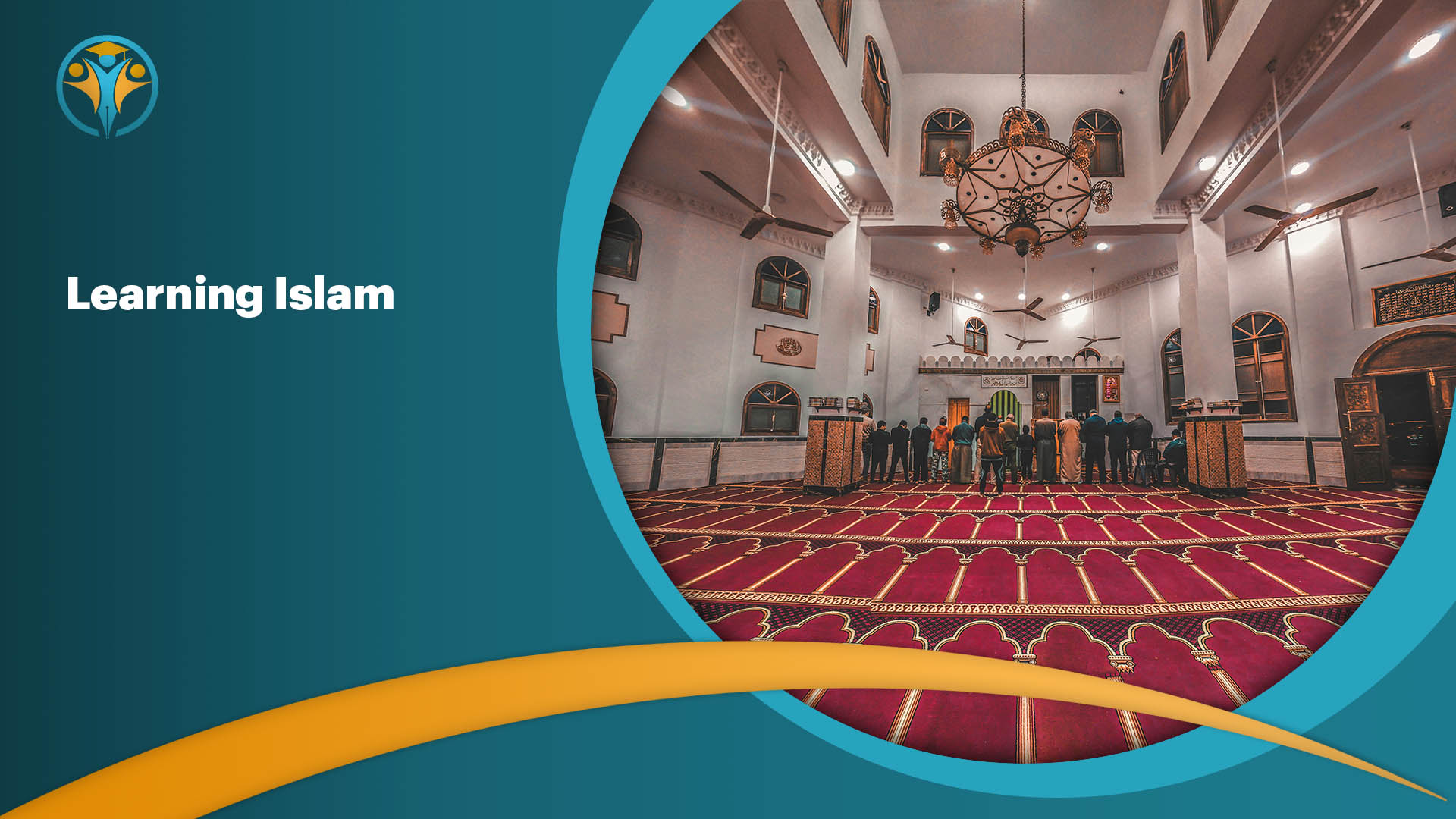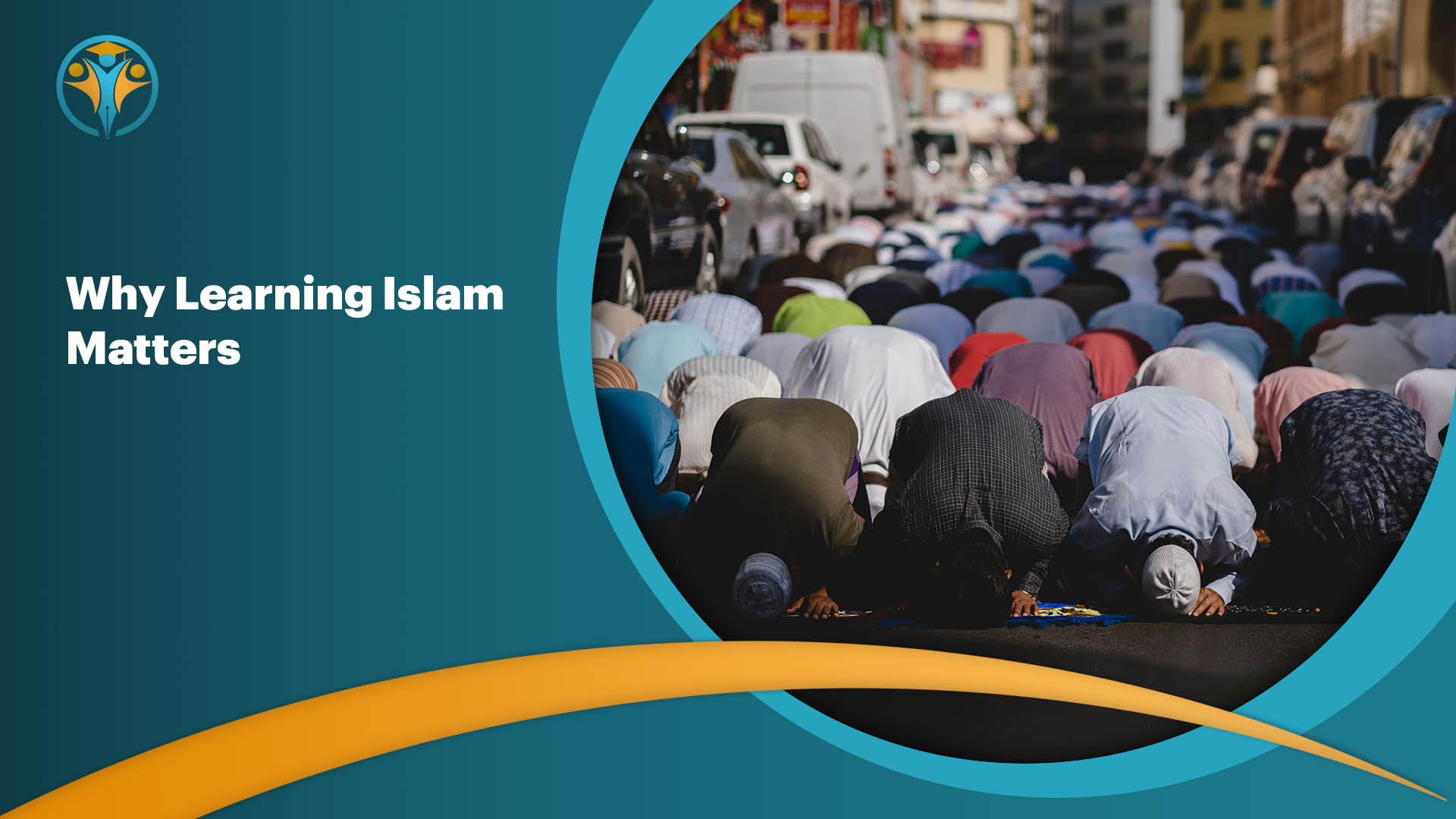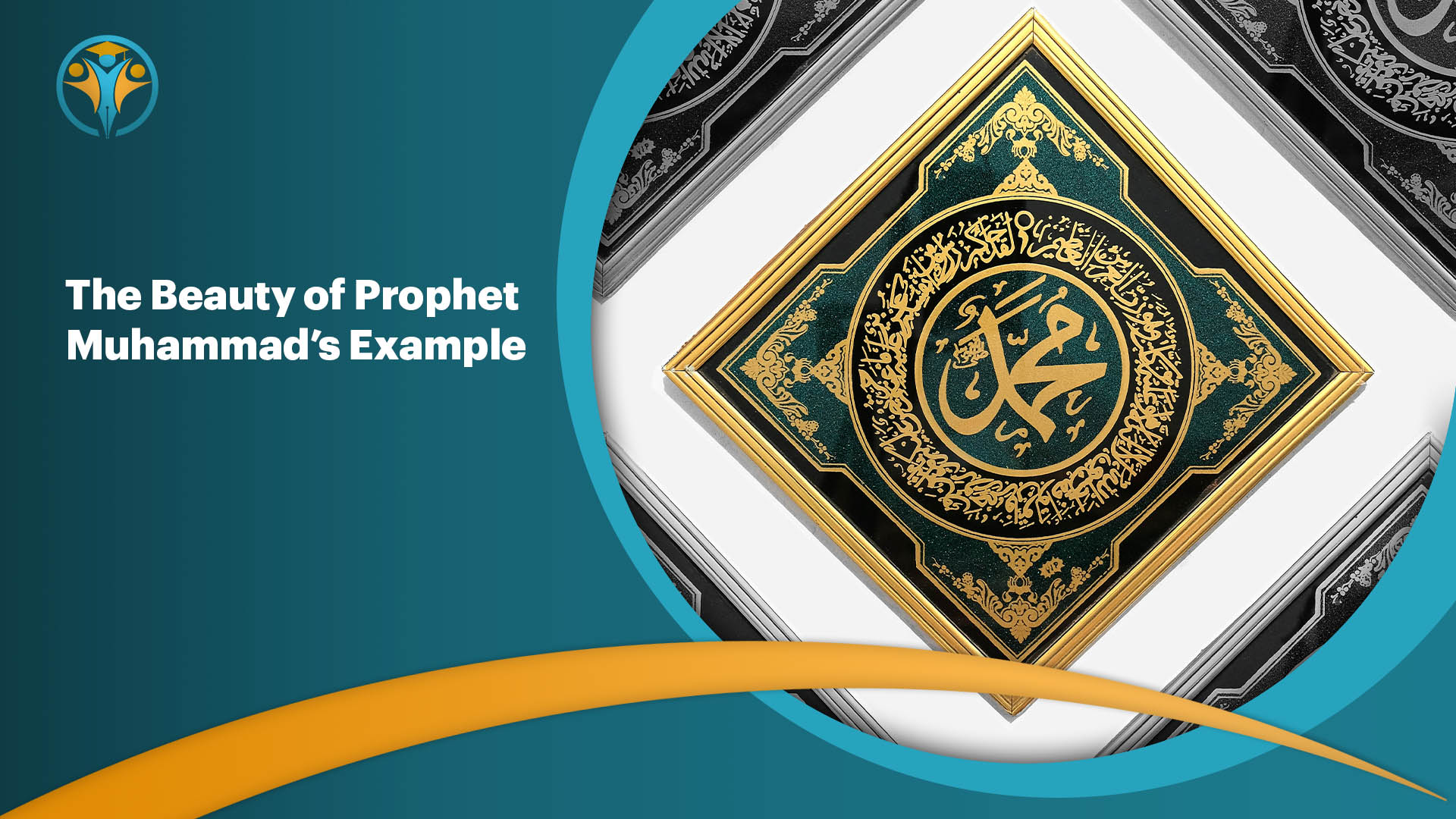
Learning Islam: A Beginner’s Guide to the Religion
Understanding Islam is a journey that combines knowledge, reflection, and practice. For many people, especially those new to the faith, learning Islam step by step can feel overwhelming at first. This guide has been carefully crafted to provide a clear and structured pathway into the heart of the religion, while highlighting the role of the islamic quran as the ultimate source of truth and guidance.
Super Muslim Academy has dedicated itself to supporting new learners, ensuring that Islam for beginners is taught in a way that is accessible, authentic, and deeply transformative. Whether you are curious about islam basics or already exploring Islamic practices, this article will guide you through the essentials.
Why Learning Islam Matters

Islam is more than just a religion—it is a complete way of life. For a beginner, the first step is understanding the foundation of faith. By learning Islam gradually, you allow yourself the time to:
- Grasp the islam basics without confusion.
- Build strong spiritual roots that last a lifetime.
- Recognize the wisdom of the islamic quran and its relevance to your daily life.
- Develop habits of worship and character that align with Islamic values.
Every Muslim, at some point, is asked about their beliefs—sometimes by friends, sometimes by colleagues, or even by their own children. Having clarity in your understanding allows you to share Islam with confidence.
Learn also: Islamic Studies
Start the Journey to Becoming a Super Muslim!
Join thousands of students learning Quran, Arabic, and Islamic values in a fun and engaging online environment.
Our expert teachers make learning easy, effective, and enjoyable—from the comfort of your home.
Sign up now for your free trial class and invest in a future rooted in knowledge and faith!

The True Meaning of Islam
The word Islam comes from the Arabic root “س ل م” which means submission and peace. To be a Muslim means to surrender your will to Allah, the Creator of the universe, and to find peace through that submission.
The islamic quran emphasizes this idea repeatedly:
“When his Lord said to him, ‘Submit,’ he said, ‘I have submitted [in Islam] to the Lord of the worlds.’” (Quran 2:131)
This verse shows that Islam is not a new religion but the continuation of the same divine message sent to all prophets—from Adam to Noah, Abraham, Moses, Jesus, and finally Muhammad (peace be upon them all).
For those who are just starting, islam for beginners means realizing that this faith is timeless, universal, and meant for all of humanity.
Islam Basics Every Beginner Should Know
When learning Islam, it is important to start with the core pillars of faith and practice. Scholars often describe Islam as a combination of three elements:
- Speech by the tongue – declaring your belief.
- Belief in the heart – firm conviction in Allah.
- Actions by the body – living according to Islamic teachings.
This foundation is supported by two essential frameworks:
1. The Six Beliefs of Faith (Iman)
Every Muslim is required to believe in the following:
- Belief in Allah
- Belief in His Angels
- Belief in His Books (including the islamic quran)
- Belief in His Messengers
- Belief in the Day of Judgment
- Belief in Divine Decree (Qadar)
2. The Five Pillars of Islam
To practice Islam, Muslims live by five pillars that structure their daily life:
- Shahadah (declaration of faith)
- Salah (five daily prayers)
- Zakat (almsgiving)
- Sawm (fasting in Ramadan)
- Hajj (pilgrimage to Mecca, if able)
Together, these beliefs and practices are the backbone of Islam. For islam for beginners, focusing on these essentials helps build a strong spiritual foundation.
read also: islam muslim
The Role of the Prophet Muhammad ﷺ
One cannot learn Islam without learning about Prophet Muhammad (peace be upon him). He was the final messenger, chosen to deliver the last revelation, the islamic quran. Born in Mecca in 571 CE, his life transformed Arabia from a land of tribal conflict to a society based on faith, justice, and compassion, Some highlights from his life include:
- Receiving the first revelation in the Cave of Hira.
- Spreading the message of Islam despite opposition.
- Migrating to Medina and establishing the first Islamic community.
- Conquering Mecca with mercy and forgiveness.
His biography (Seerah) is an essential part of learning Islam, as it shows how he lived the teachings of the islamic quran in everyday life.
Why the Islamic Quran Is Central
At the heart of Islam lies the islamic quran, the divine book revealed to Prophet Muhammad ﷺ over 23 years. It is:
- A guidebook for life, covering spiritual, moral, and social matters
- A miracle in terms of its language, wisdom, and preservation.
- A light that transforms hearts from doubt to faith.
Allah challenges humanity:
“And if you are in doubt about what We have sent down to Our servant, then produce a chapter like it.” (Quran 2:23)
For those beginning their journey, reading the islamic quran regularly—even if only a few verses a day—can open doors to knowledge and inner peace.
The Concept of Life After Death
One of the most essential parts of learning Islam is understanding what comes after this worldly life. The islamic quran repeatedly reminds us that life on earth is temporary and that every soul will eventually taste death:
“Every soul shall taste death, and you will only be given your [full] compensation on the Day of Resurrection.” (Quran 3:185)
For islam for beginners, this belief is important because it shapes how Muslims live their lives. Instead of chasing temporary pleasures, a Muslim prepares for the eternal life by following the guidance of Allah.
Stages of the Afterlife
- Barzakh (life in the grave): This is the stage after death, before the Day of Judgment, where the soul experiences peace or punishment.
- Day of Judgment: Every human being will be resurrected and judged by Allah.
- Paradise (Jannah): The eternal home of peace for those who believed and followed the guidance of the islamic quran.
- Hell (Jahannam): A place of punishment for those who denied Allah and His messengers.
This belief gives meaning to every action in life. A believer knows that even small acts of kindness will be rewarded, and every injustice will be accounted for.
The Impact of the Islamic Quran on Daily Life
The islamic quran is not just a book of rituals—it is a complete manual for life. When Muslims read the Quran with understanding, they find:
- Guidance for morality and ethics – such as honesty, patience, and justice.
- Spiritual connection – reciting the Quran during prayer deepens faith.
- Practical rules – covering family, business, charity, and social relations.
- Inspiration – stories of prophets and past nations provide lessons of resilience and faith.
Super Muslim Academy emphasizes that the Quran should not only be read but also applied. For anyone beginning their journey, dedicating even 10–15 minutes daily to reading or reflecting on the Quran can bring enormous transformation.
Read also: Online Quran Learning
Islam for Beginners: Practical First Steps
If you are new to Islam, here are some steps to make the learning process smooth and effective:
- Start with the Shahadah: Understand its meaning and live by it.
- Learn the Salah (prayers): Begin gradually, one prayer at a time if necessary.
- Read the Quran daily: Even one page a day can bring growth.
- Practice small acts of kindness: Smile, help others, and show mercy.
- Join trusted learning platforms: Institutions like Super Muslim Academy provide structured learning for those seeking guidance.
By following these steps, learning Islam becomes practical and less overwhelming.
The Beauty of Prophet Muhammad’s Example

Prophet Muhammad ﷺ was described by his wife Aisha (may Allah be pleased with her) as “His character was the Quran.” He lived the values of the islamic quran every day—with kindness, honesty, patience, and humility.
For islam basics, learning from the Prophet’s life is just as important as reading the Quran itself. His example shows how to be a good parent, spouse, leader, and community member.
Common Questions from Beginners
- Why is Iman (faith) so important in Islam?
Iman, or faith, is the foundation of Islam. Without it, actions lose their meaning. Faith in Allah, His angels, His books (especially the islamic quran), His prophets, the Day of Judgment, and Divine Decree guides a Muslim’s life and gives purpose to every act of worship. - Can I learn the Quran at home?
Yes, you can start at home by reading translations or using online tools. However, scholars recommend learning with a qualified teacher to avoid misinterpretation. Super Muslim Academy provides beginner-friendly classes for this exact reason. - How does Islam differ from other religions?
Islam shares similarities with Christianity and Judaism, such as belief in one God and prophets. However, Muslims believe Prophet Muhammad ﷺ is the final messenger, and the islamic quran is the last unaltered revelation, making Islam a completion of earlier divine messages. - What is La ilaha illallah?
It means “There is no god worthy of worship except Allah.” This phrase is the core of Islamic belief and the entrance into Islam. - Can I convert to Islam at any age?
Yes. Anyone who sincerely recites the Shahadah can embrace Islam, regardless of age or background. What matters most is understanding and conviction.
In conclusion, Learning Islam is not just about memorizing rules—it is about transformation. By understanding the islamic quran, following the pillars of Islam, and studying the life of the Prophet ﷺ, every beginner can build a strong foundation of faith.
Super Muslim Academy plays a key role in helping students of all backgrounds understand islam for beginners in a structured and inspiring way. Whether you want to explore islam basics or dive deeper into Quranic studies, the Academy ensures that learning Islam remains authentic, accessible, and life-changing.
May Allah bless your journey, guide your heart, and make the islamic quran a light for your path, both in this world and the next.
Learn also: Online Quran Classes UK


